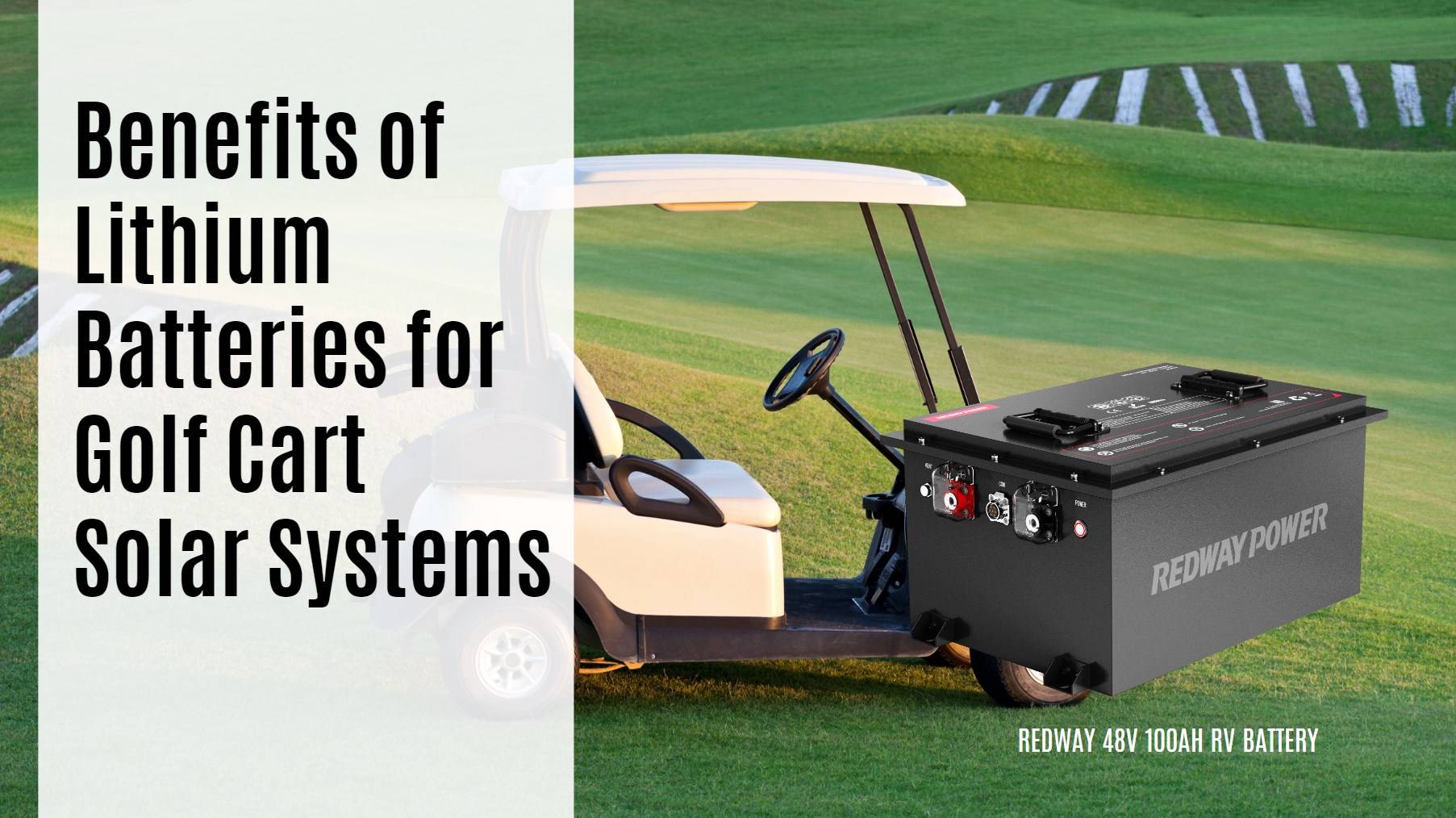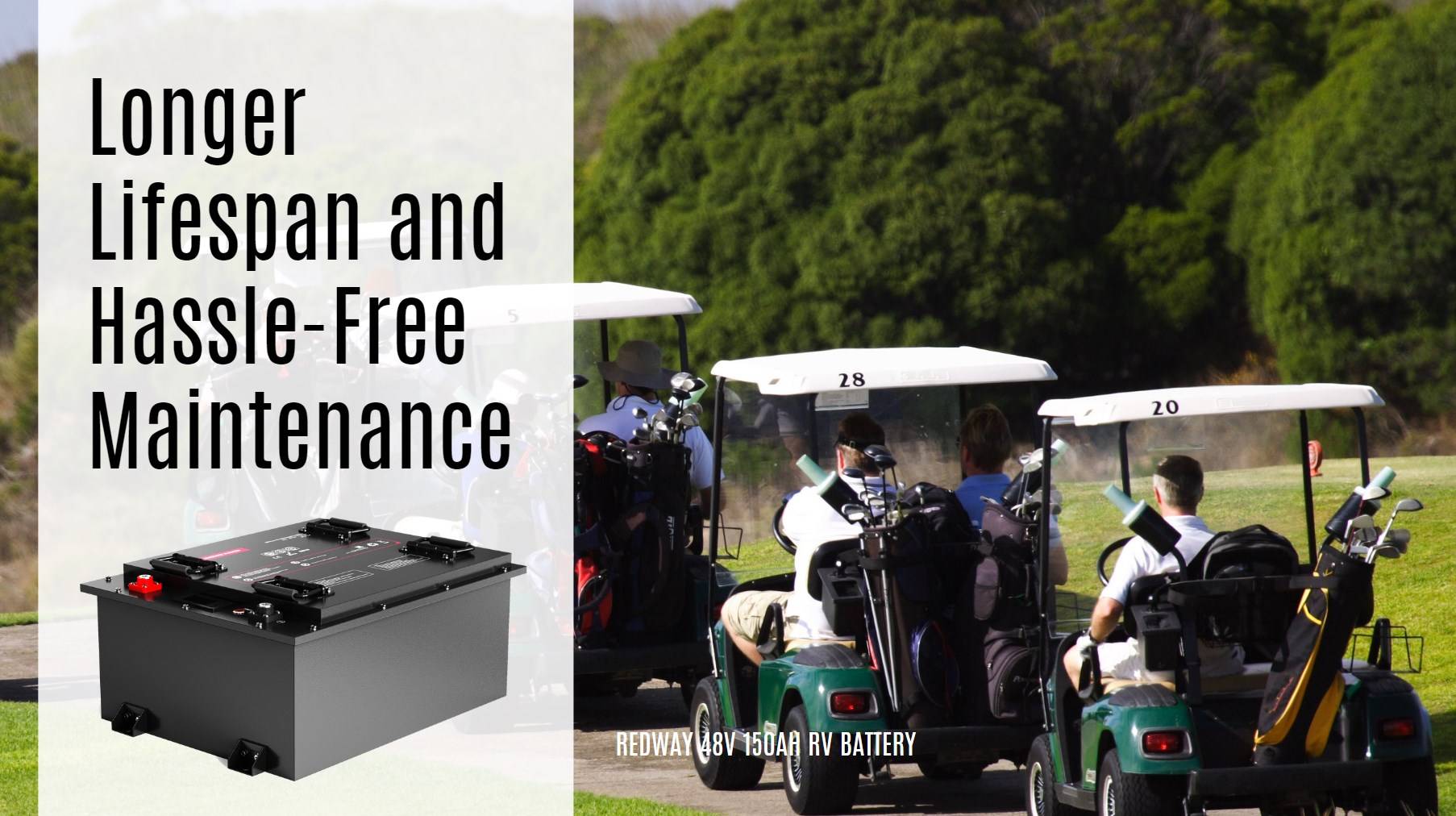- Forklift Lithium Battery
-
48V
- 48V 210Ah
- 48V 300Ah
- 48V 420Ah (949 x 349 x 569 mm)
- 48V 420Ah (950 x 421 x 450 mm)
- 48V 456Ah
- 48V 460Ah (830 x 630 x 590 mm)
- 48V 460Ah (950 x 421 x 450 mm)
- 48V 460Ah (800 x 630 x 600 mm)
- 48V 460Ah (820 x 660 x 470 mm)
- 48V 500Ah
- 48V 560Ah (810 x 630 x 600 mm)
- 48V 560Ah (950 x 592 x 450 mm)
- 48V 600Ah
- 48V 630Ah
-
48V
- Lithium Golf Cart Battery
- 12V Lithium Battery
12V 150Ah Lithium RV Battery
Bluetooth App | BCI Group 31
LiFePO4 Lithium
Discharge Temperature -20°C ~ 65°C
Fast Charger 14.6V 50A
Solar MPPT Charging - 24V Lithium Battery
- 36V Lithium Battery
- 48V Lithium Battery
-
48V LiFePO4 Battery
- 48V 50Ah
- 48V 50Ah (for Golf Carts)
- 48V 60Ah (8D)
- 48V 100Ah (8D)
- 48V 100Ah
- 48V 100Ah (Discharge 100A for Golf Carts)
- 48V 100Ah (Discharge 150A for Golf Carts)
- 48V 100Ah (Discharge 200A for Golf Carts)
- 48V 150Ah (for Golf Carts)
- 48V 160Ah (Discharge 100A for Golf Carts)
- 48V 160Ah (Discharge 160A for Golf Carts)
-
48V LiFePO4 Battery
- 60V Lithium Battery
-
60V LiFePO4 Battery
- 60V 20Ah
- 60V 30Ah
- 60V 50Ah
- 60V 50Ah (Small Size / Side Terminal)
- 60V 100Ah (for Electric Motocycle, Electric Scooter, LSV, AGV)
- 60V 100Ah (for Forklift, AGV, Electric Scooter, Sweeper)
- 60V 150Ah (E-Motocycle / E-Scooter / E-Tricycle / Tour LSV)
- 60V 200Ah (for Forklift, AGV, Electric Scooter, Sweeper)
-
60V LiFePO4 Battery
- 72V~96V Lithium Battery
- Rack-mounted Lithium Battery
- E-Bike Battery
- All-in-One Home-ESS
- Wall-mount Battery ESS
-
Home-ESS Lithium Battery PowerWall
- 24V 100Ah 2.4kWh PW24100-S PowerWall
- 48V 50Ah 2.4kWh PW4850-S PowerWall
- 48V 50Ah 2.56kWh PW5150-S PowerWall
- 48V 100Ah 5.12kWh PW51100-F PowerWall (IP65)
- 48V 100Ah 5.12kWh PW51100-S PowerWall
- 48V 100Ah 5.12kWh PW51100-H PowerWall
- 48V 200Ah 10kWh PW51200-H PowerWall
- 48V 300Ah 15kWh PW51300-H PowerWall
PowerWall 51.2V 100Ah LiFePO4 Lithium Battery
Highly popular in Asia and Eastern Europe.
CE Certification | Home-ESS -
Home-ESS Lithium Battery PowerWall
- Portable Power Stations
What are the Benefits of Lithium Batteries for Golf Cart Solar Systems?

Lithium batteries provide numerous advantages for solar-powered golf carts, including longer lifespan, faster charging times, and greater efficiency. These benefits make lithium batteries an ideal choice for enhancing the performance and sustainability of golf cart solar systems.
What Advantages Do Lithium Batteries Offer for Solar-Powered Golf Carts?
Lithium batteries are increasingly popular in solar-powered golf carts due to their superior features:
- Higher Energy Density: They store more energy in a smaller space, allowing for lighter and more compact battery systems.
- Longer Lifespan: With proper care, lithium batteries can last up to 10 years, significantly outlasting lead-acid options.
- Low Maintenance: Unlike lead-acid batteries, lithium batteries require minimal maintenance, reducing overall ownership costs.
Chart: Comparison of Battery Advantages
| Feature | Lithium Batteries | Lead-Acid Batteries |
|---|---|---|
| Energy Density | Higher | Lower |
| Lifespan | Up to 10 years | 3-5 years |
| Maintenance | Low | High |
| Weight | Lighter | Heavier |
How Do Lithium Batteries Improve Performance in Golf Cart Solar Systems?
Lithium batteries enhance performance in several ways:
- Consistent Power Output: They provide stable voltage throughout the discharge cycle, ensuring reliable performance.
- Faster Acceleration: The lightweight nature of lithium batteries allows for quicker acceleration and improved handling.
- High Discharge Rates: They can deliver high currents without significant voltage drop, making them suitable for high-demand applications.
Why Are Lithium Batteries More Efficient Than Lead-Acid Batteries?
Lithium batteries are more efficient due to:
- Higher Charge Efficiency: They charge faster (typically within 2-4 hours) compared to lead-acid batteries (8-12 hours).
- Deeper Discharge Capabilities: Lithium batteries can be discharged up to 80% without damage, while lead-acid should not go below 50%.
- Lower Self-Discharge Rates: They lose less charge when not in use, making them more efficient for intermittent usage.
Chart: Efficiency Comparison
| Metric | Lithium Batteries | Lead-Acid Batteries |
|---|---|---|
| Charge Time | 2-4 hours | 8-12 hours |
| Depth of Discharge | Up to 80% | 50% recommended |
| Self-Discharge Rate | Low | Moderate |
What is the Lifespan of Lithium Batteries in Solar Applications?
In solar applications, lithium batteries can last significantly longer than lead-acid options:
- Cycle Life: They can endure up to 2000 cycles at full depth of discharge compared to about 300-500 cycles for lead-acid.
- Calendar Life: With proper management and charging practices, lithium batteries can last up to 10 years or more.
How Do Lithium Batteries Affect Charging Times in Golf Cart Solar Systems?
Lithium batteries greatly reduce charging times:
- They can fully charge within 2 to 4 hours, allowing for quicker turnaround between uses.
- This rapid charging capability is particularly beneficial for golf carts that may need frequent recharging throughout the day.
What Are the Environmental Benefits of Using Lithium Batteries?
Using lithium batteries has several environmental advantages:
- Reduced Waste: Their longer lifespan means fewer batteries are disposed of over time.
- Recyclability: Many lithium battery components are recyclable, reducing landfill impact.
- Lower Carbon Footprint: The efficiency and longevity of lithium batteries contribute to a lower overall carbon footprint compared to traditional lead-acid systems.
Industrial News
The adoption of lithium battery technology in solar applications is growing rapidly. Recent advancements focus on improving recycling processes and reducing environmental impacts associated with lithium extraction. As demand increases for sustainable energy solutions, manufacturers are innovating to enhance battery performance while minimizing ecological footprints.
Redway Power Views
“Switching to lithium batteries in solar-powered golf carts not only boosts efficiency but also aligns with sustainability goals,” states Mark Johnson, a renewable energy expert at Redway Power. “As technology advances, we expect even greater improvements in battery performance and environmental responsibility.”
FAQ
Q: Can I replace my lead-acid battery with a lithium battery directly?
A: Yes, but ensure your system is compatible with lithium technology and adjust charging settings accordingly.Q: How do I maintain my lithium battery?
A: Minimal maintenance is required; just ensure proper charging practices are followed and keep terminals clean.Q: Are lithium batteries safe for solar applications?
A: Yes, when used correctly, lithium batteries are safe and often come with built-in management systems that enhance safety.


























